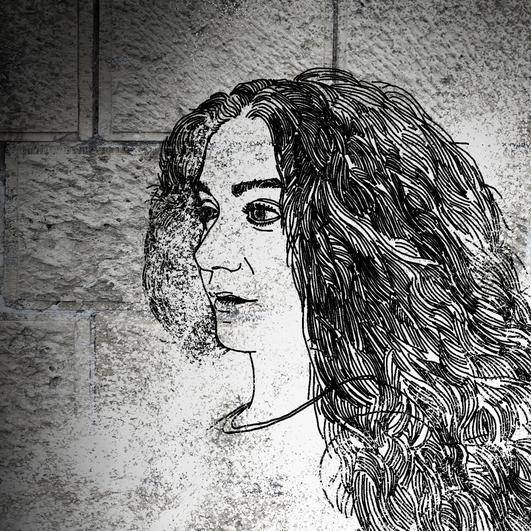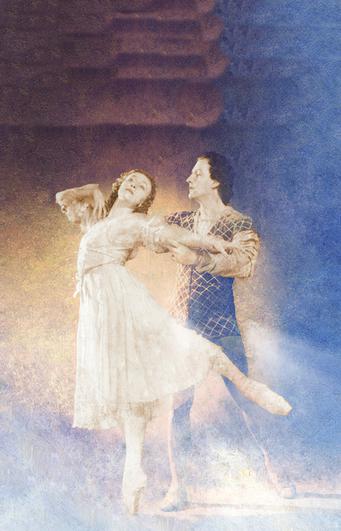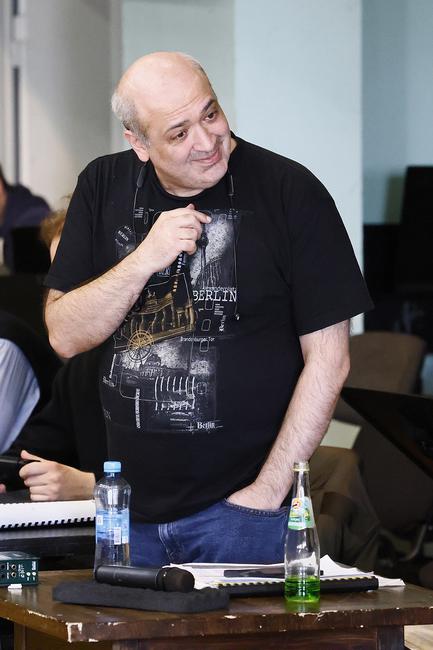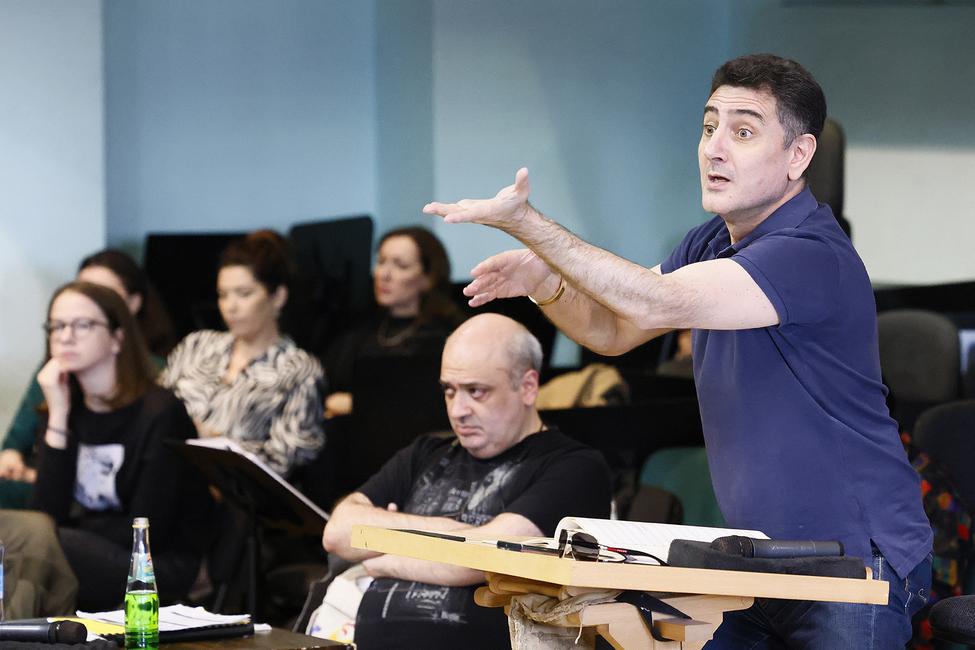
The story of Luisa Miller, unspoiled with audiences’ recognition, is paradoxical, which was, perhaps, stipulated by those exact circumstances which were to become a hallmark of its success.
The famous bourgeois tragedy Kabale und Liebe by Friedrich Schiller, which gained popularity from the first staging (1784), became the original source for the libretto. The idea to create an opera to this plot belonged to librettist Salvadore Cammarano. Moreover, Verdi himself, who loved Schiller and had already written two operas based on his dramas, sympathised with the idea. (Not for nothing, during the work process, did he ask Cammarano multiple times to avoid deviation from what had been written by the dramaturg). Nonetheless, several significant changes were indeed made. The cast was reduced, relationships between the characters were changed to some degree along with some circumstances, which attended the development of the intrigue. Its revealing fervour also diminished. However, for all that, Luisa Miller went down in history as one of the first social dramas in musical theatre and the first amongst Verdi’s works.
The fact that this opera became, to some extent, a pioneer of new ways, perhaps left its mark on its ultimately unhappy stage fate. The director of the production at the Bolshoi, Georgy Isaakyan, believes that it was simply ahead of its time. To be more precise, the audience needed time to appreciate the composer’s innovation. However, when the audience “ripened”, they had already had such masterpieces as Rigoletto and La Traviata to their services, while Luisa Miller, that remained in their shadow, drifted into the past and thus concluded the early period of his work, having become a transition bridge to the era of his creative maturity that would mark the peak of his talent.
It was already in Luisa Miller where the composer shows himself as a skilled dramaturg, creates diverse natures, so the characters do not seem to be defined by any single – black or white – paint. Villains suddenly reveal comic or noble traits, while a noble romantic hero becomes obsessed by the idea of revenge. As well as in the case of Schiller, a passionate exposer of tempers, a romantic tension of passions is strong in the opera. If this opera is considered “bourgeois”, it is only for having the characters who represent the third estate. What is more, they are showered with complex inner life, like the aristocracy who are in social conflict with the former. Soulful emotions come to the forefront of this opera – to the “detriment” of purely outer and unclaimed stage effects.
Luisa is a forerunner of a kind, a prophetess of the future turns and topics, purely creative “moves” and near-artistic solutions. It is here where the moving daughter-father relationship, which would then continue their developments in Rigoletto, begins; it is here where the letter, in which the heroine will sacrifice herself and her love, that would find such a perfect realisation in La Traviata, is written for the first time. Concerning a mixed, compared to Schiller’s play, “note of protest” and an action which is partially transferred in to a pastoral Tirol village, it was self-censorship that had a part to play (and censorship would raise the heckles of the composer multiple times): the premiere was supposed to take place at the Kingdom of Naples, where, as in German dutchy Württemberg, from which Schiller had run away, the monarch was not prepared to give his sympathies to commoners.
The main paradox of Luisa Miller is its music. Almost every contemporary reviewer – and at the end the 20th century a gradual return of Luisa Miller to theatre repertoire was happening, which has continued to these days; amongst the freshest and relatively new productions could be mentioned the performances at the Metropolitan Opera, the Paris and Lyon Operas, Operas and the Teatro dell‘Opera di Roma – regarded certain arias and ensembles with reverence, considering them to belong to the summits of the global music literature. Not to mention the overture, the echoes of which reverberate throughout the entire work, but it lives its own separate life as an independent concert play.
The wonderful ensembles – the dialogue of Luisa and Wurm in the letter scene, the quartet a capella in the second act and others – for the first time in Verdi’s work, play such an important role in the unfolding of the action. However, the core is certainly the female leading character. For a reason the opera is named after her – that’s how, as is well known, Schiller had wanted to call his play. The whole work is pierced with the theme of poor Luisa’s suffering. Verdi allots her with an extraordinary expressive musical character. And Luisa Miller, together with its central character of the same name, once again anticipates a brilliant lyrical opera by Verdi – La Traviata. Not only does Georgy Isaakyan, of course, pay the closest attention to its feminine and lyrical basis but he allots the opera with something both revelatory and mystical. The way it is happening is kept a secret until the premiere. Although, we are ready to allow you to have a glimpse behind the curtain of the mystery: divine voices will join the action. The voices of the sky. (The responsibility for their sound will be partially taken by the choir of Tirol peasants, in which, as usually happens, they will be assisted by chief choral master of the Bolshoi, Valery Borisov).
The background that sees the tragic love story of Luisa and Rodolfo unfold, consists of a shop, storage space, a reception at burgomaster’s which is accompanied by a beauty contest of local significance and a rich demonstration of outfits (stage designer – Alexei Tregubov).
The music director of the production is maestro Eduard Topchjan. Chief conductor of the National Philharmonic Orchestra of Armenia, he is known far beyond the borders of his native republic and regularly performs with leading orchestras in Europe and the USA.
The premiere performances, which are held on the 25th-28th of May, will feature the leading artists of the opera troupe: Anna Aglatova, Ekaterina Morozova (Luise), Konstantin Artemyev (Rodolfo), Vladislav Popov (Count Walter), Nikolai Kazansky, Denis Makarov (Wurm), Elchin Azizov, Alexander Krasnov (Miller), Agunda Kulaeva, Alina Chertash (Federica), Daria Belousova (Peasant Girl Laura), Ivan Maksimeyko (Peasant).
A famous Italian tenor, Antonio Poli, winner of the first award at the prestigious International Hans Gabor Belvedere Singing Competition, held in Vienna (2010) will sing the part of Rodolfo. He has sung on the stages of many of the world’s leading opera houses, including La Scala and the Royal Opera House, Covent Garden. At the beginning of last year, he performed the part of Rodolfo in the production of Teatro Dell'Opera di Roma. He is invited to the Bolshoi Theatre for the first time. Simon Lim, a well-known Korean singer who collaborates with major European and American opera houses, including La Scala, Teatro La Fenice, the Teatro Real in Madrid, and the San Francisco Opera, is singing the part of Walter. At the Bolshoi Theatre, he just made his successful debut in early May in another opera written by Verdi based on the plot of Schiller’s drama, Don Carlos, performing the part of Philippe II. In addition to that, artists of the Youth Opera Program of the Bolshoi, Anna Yurkus (Laura), Roman Kollert and Ilya Legatov (Peasant) will take part in the premiere performances.
The premiere of the opera Luisa Miller was held on the 8th of December 1849 at the Real Teatro di San Carlo in Naples. In Russia, the premiere was presented by the artists of the Imperial Italian Opera – firstly, at the St Petersburg Bolshoi Theatre (1857), then in the Moscow Bolshoi (1874). It has never been staged in Moscow since then.




